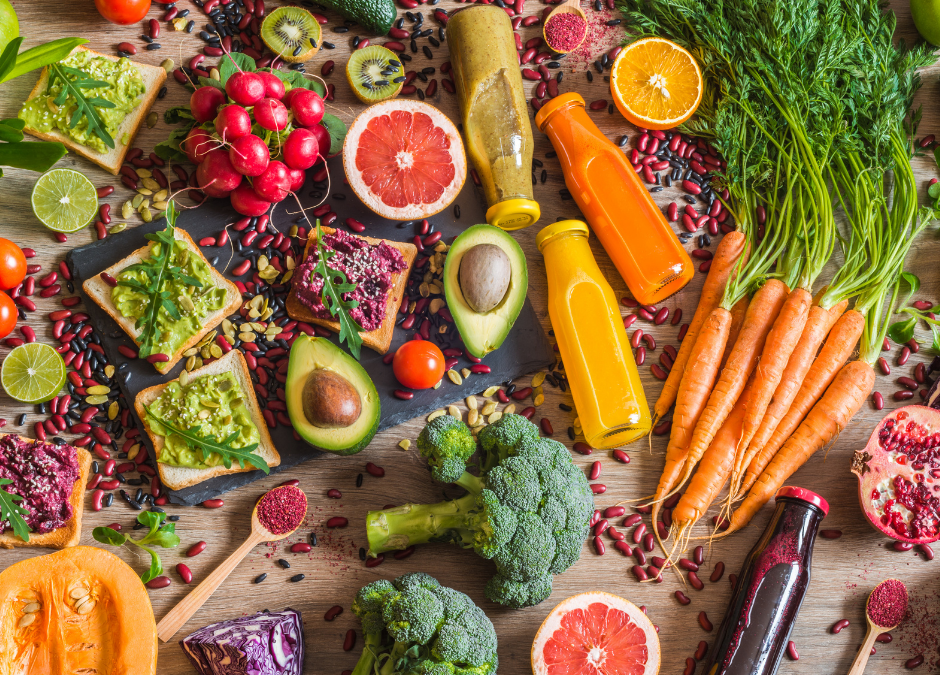
Protein for Vegans / Vegetarians!
Plant foods are often a decent source of protein and of real benefit in helping to chop back animal proteins within the diet whether you’re an omnivore, vegetarian or a vegan. Here are a listing of plants that are great for protein!
1. Quinoa
Quinoa may well be a seed and you will find white, red, black or mixed varieties. 100g of quinoa (cooked weight) will provide almost 4g protein, but it’s also called an entire protein which means it contains all 22 amino acids, making it a wonderful alternative to carbohydrates like rice and couscous.
2. Pulses
A pulse is basically an seed that grows during a pod, and this therefore includes all beans, peas and lentils. These make a decent, low-fat and affordable source of plant protein and provide many variety. Different pulses include:
Lentils including Puy, green, and red: around 8-9g of protein per 100g
Chickpeas, including hummus: 7g of protein per 100g
Garden peas – around 7g per 100g
Beans, including black-eyed, pinto, butter, cannellini, soya, edamame and kidney: between 7-10g protein per 100g
Baked beans do count as an honest source of protein but keep a watch fixed on the salt content: 5g per 100g.
Tofu
Tofu, or tofu, springs from soya and just 100g of tofu provides 8g protein. Tofu is incredibly versatile because it’ll be cooked in some ways, including baking and stir-frying, yet as blending it into soups to create them creamier and better in protein.
3. Nuts and seeds
Nuts and seeds are again very versatile and could beused with meals or as a snack to verify adequate protein, and energy, is maintained throughout the day. variety of the only nut and seed proteins include:
Hemp seeds – 5g per heaped tablespoon
Ground linseed – 3g per heaped tablespoon
Almonds – 3g of protein for every six almonds
Walnuts – around 3g of protein for every three whole walnuts
Pumpkin seeds – 4g per tablespoon
Pistachios – just over 1g of protein over 10 pistachios
Cashew nuts – 3g per 10 cashew nuts
Brazil nuts – 4g per six Brazil nuts
Peanut butter and nut butters too as another convenient protein source, but read the label to create sure they’re 100% nuts and do not have any added oils, salt or sugars. One heaped tablespoon of smooth paste provides just over 3g of protein.
4. Chia seeds
Just one tablespoon of chia seeds will provide almost 2g of protein, which they is utilized in breakfasts, sprinkled over salads and soups, or as a healthy, protein-rich dessert. They also work as an excellent replacement to egg in vegan cooking as they’re hydrophilic and mighttherefore expand when soaked in water for about twenty minutes.
5. Buckwheat
Buckwheat is actually a seed that’s high in both protein and fibre, with 100g providing about 5g of protein, and it’s also gluten-free. Buckwheat is becoming increasingly popular and could be found as flakes, groats, pasta and flours making it an excellent addition to a vegan diet.
6. Oats
Whilst oats are a flowery carbohydrate, providing slow energy release, they’re also an outstanding source of protein packing 10g per 100g.
7. Brown and wild rice
Whilst primarily a carbohydrate, brown and wild rice do contain adequate levels of protein, around 4g per 100g, and they’re also a superb source of fibre.
8. Other grains
Some slightly less known grains can also be accustomed raise your protein:
Spelt – over 5g of protein per 100g
Teff – over 4g of protein per 100g
Amaranth – over 4g of protein per 100g
Sorghum – over 8g of protein per 100g
9. Vegetables
Vegetables also offer a surprising amount of protein including:
Asparagus – almost 2g of protein per six spears
Avocado – over 1g per ½ an avocado
Broccoli – almost 3g per 80g broccoli
Brussels sprouts – around 2g per 80g Brussels sprouts
Cauliflower – 1.5g per 80g serving
Jerusalem artichokes – over 1g of protein per 80g
Kale – almost 2g per 80g serving
Spinach – 2g per 80g serving
Sweetcorn – over 2g for every three heaped tablespoons
Download PROVIDE A MEAL app and feed someone today! ![]()
![]()




